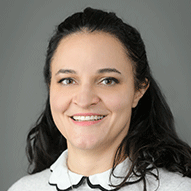Dallas
214-456-2740
Fax: 214-456-6898
Request an Appointment with codes: Neurology
At Children’s Health we have the expertise to diagnose and treat all types of myasthenia gravis in kids and infants. We are certified as a Myasthenia Gravis Center of Excellence through the Myasthenia Gravis Foundation, which recognizes centers able to best provide expertise and comprehensive care for this condition.
214-456-2740
Fax: 214-456-6898
Request an Appointment with codes: Neurology
Myasthenia gravis (MG) is an autoimmune disorder, a condition where immune cells mistakenly attack healthy tissue. It affects the muscles in different parts of the body. Immune cells disrupt the communications between nerves and muscles, causing the muscles to weaken.
Myasthenia gravis can occur at different ages. A child’s eyelids may start to droop, or they may start having trouble moving their eyes. Next, they may start having problems chewing and swallowing as well as using their arms and legs and even breathing.
Children with myasthenia gravis may feel fine in the morning and may be very tired by the end of the day. If the condition is not well controlled, they may have serious events called myasthenia crises in which they get very sick and may have trouble breathing.
Myasthenia gravis is divided into types based on the age of the patient and whether it primarily affects the eyes or other parts of the body.
Generalized myasthenia gravis affects muscles throughout the body. It can start in childhood or later in life.
This type only affects the eyes, but a large portion of people with this form of myasthenia gravis will eventually develop the generalized form. Like generalized myasthenia gravis, the ocular type can start in childhood or later in life.
A child with myasthenia gravis may experience the following symptoms:
Different steps may be needed to diagnose myasthenia gravis in children. The various steps we take to diagnose myasthenia gravis at Children’s Health℠ include:
We know that myasthenia gravis is an autoimmune disease, but it isn’t clear why some people get the disease and others don’t.
The thymus, a big gland in the chest, is believed to play a role in myasthenia gravis. Some families also tend to get autoimmune conditions.If someone in your family has an autoimmune disorder, your child may also have an increased risk.
We may prescribe different medications to treat myasthenia gravis in children. Some treat the symptoms of the disease, while others slow down (suppress) the immune response:
There also are several procedures that we may use:
Each child’s care team is made up of specialists.


In rare cases, myasthenia gravis in children can go away, especially with early diagnosis and treatment. In most cases, it is a lifelong disease.
This condition can start at any age.